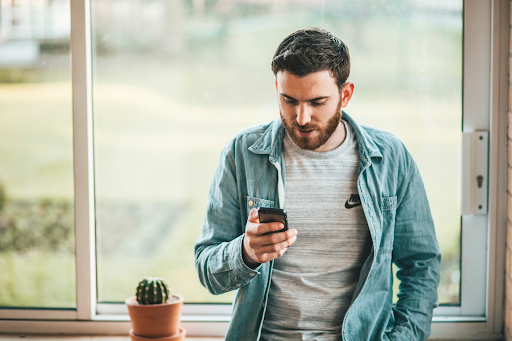Search
[{{{type}}}] {{{reason}}}
{{/data.error.root_cause}}{{{_source.title}}} {{#_source.showPrice}} {{{_source.displayPrice}}} {{/_source.showPrice}}
{{#_source.showLink}} {{/_source.showLink}} {{#_source.showDate}}{{{_source.displayDate}}}
{{/_source.showDate}}{{{_source.description}}}
{{#_source.additionalInfo}}{{#_source.additionalFields}} {{#title}} {{{label}}}: {{{title}}} {{/title}} {{/_source.additionalFields}}
{{/_source.additionalInfo}}What Does 'Good' Screen Time Look Like These Days?

These days, global screen time averages at almost 7 hours a day. Admittedly, some of this is ‘work time’, but the rest is often just dreaded evening-time scrolling. After all, the internet and our smartphones are uniquely designed to catch us after a long day, when we sit down for ten minutes but end up on social media for two hours instead.
This, in itself, needn’t be an issue, but most people report feelings of guilt or inadequacy after long phone sessions. Despite that, studies show that our screen usage is only set to increase. So, what can we do to save our sanity in this age of screen time?
Believe it or not, there is such a thing as ‘good’ screen time. By taking the time to remember this, you may find it possible to develop more wholesome, satisfying screen experiences overall.
The question is, what exactly does ‘good’ screen time mean these days?
Screen time for learning
We spend so long focusing on the negatives of screen time that we forget one crucial thing – the internet and screens in general have opened up entire worlds of potential learning that we didn’t have access to even ten years ago. From opportunities like full-blown online Master's degrees to brain-honing online games like the Christmas word search you can complete on 247Wordsearch, the learning world really is your oyster with a screen in your hand.
With many people now using social media platforms like Instagram to share worldwide news, petitions, and more, there’s even an argument that social media can be educational if you follow the right profiles. And, enjoying all of these learning benefits simply requires you to use screens intentionally, visit the right pages, and generally tailor your screen habits towards brain betterment.
Screen-time for research

A few decades ago, we had to head to the library whenever we wanted to learn a new piece of information. And, nobody would’ve dreamt of saying that time spent in a library was going to waste. Now, we have entire libraries of knowledge at our fingertips. Utilizing them can be a great and beneficial way to make the most of your screen time. Resources like Google, in particular, mean that you could spend this time researching news stories that you don’t understand, exploring new topics that interest you, and generally filling your cup so that you put your phone down feeling fulfilled, rather than empty. That’s what we call constructive time killing!
Screen-time for reconnection
Social media usage can be a negative thing for many people, especially when it pushes us to make direct comparisons between our lives and what other people choose to share. However, social media has also made it easier than ever for us to reconnect with old friends, and stay in touch with people that might have left our lives otherwise. And, if you use it for those purposes, you should find that your experiences are far more positive. In particular at this time of year, replacing your usual Christmas cards with a direct social media message can see you exchanging a back-and-forth with estranged friends. And, that’s a great way to put your screen time to effective use, without those negative side effects.
Screen time with limits

Often, the guilt of screen time comes from the feeling that you’ve lost hours to your phone, especially when you have a lot of other things that need doing. This is an issue no matter what you’re using your screen time for. As such, ‘good’ screen time should also come with limits. The good news is that there are plenty of effective ways to limit screen time these days. Settings like Apple’s Screen Time option can even set a specific timer if you don’t trust yourself to stop! Equally, getting into habits like tracking your usage and taking regular screen breaks every half hour or so can see you stepping away from your phone at last. Over a few weeks, these small changes could lead to a significant shift in your outlook, and could even see you picking up a book when you previously wouldn’t have thought twice about using your phone.
Screen time needn’t be the ‘evil’ force that we treat it as. The internet’s scope offers us a wide range of positive engagements. If you feel bad about your usage right now, then why not consider one of those more positive alternatives? By changing your habits, you could find that screen time becomes a positive force for good pretty quickly.
When you subscribe to the blog, we will send you an e-mail when there are new updates on the site so you wouldn't miss them.







Comments